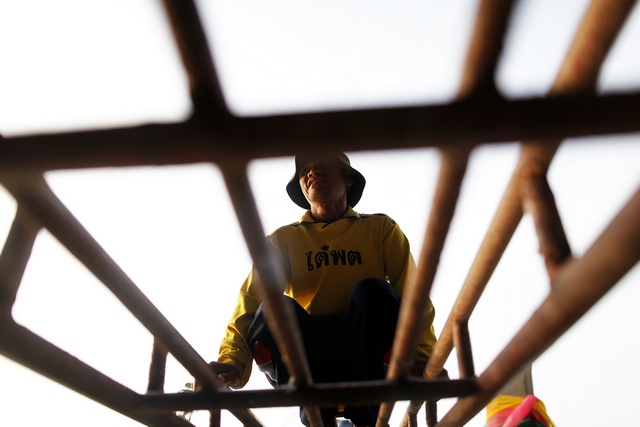Burmese migrants working for a Thai seafood company will receive a share of a US$1.3 million payout after striking en masse.
Approximately 1,500 Burmese labourers are set to be compensated by the Golden Prize Tuna Canning Company at the port of Mahachai, close to Bangkok. The agreement follows a strike by more than 1,000 workers last week protesting salary abuse and exploitative working conditions at the factory.
Company owners agreed to pay 65 percent of the total amount of money owed to workers on Monday, following negotiations between workers rights leaders, government officials, local police and the company.
The seafood factory workers said wages paid since 2013 had not reflected an increase to Thailand’s set minimum wage that year. Last week’s strike also drew attention to claims of other unfair practices at Golden Prize, including a denial of sick or holiday leave.
“The company began paying 1,100 workers last night [29 February] involving money of 48 million baht [$1.3m],” Boonlue Sartpetch, the head of the province’s labour department, told news agency AFP.
While the compensation package has been hailed as a win for workers, a spokesperson for the Mahachai-based Migrant Workers Rights Network believes wage discrimination persists at the company.
“There are 1,500 Burmese workers and 250 [Thai] workers who are not paid equally,” said Migrant Workers Rights Network vice-chairman Aung Kyaw, who estimates the total pay out to double to a figure of around 80 million baht. The organisation attributed the success to the workers unity and their understanding of the labour laws.
Cho Cho Mar, from Mon State, who has worked for the company for 10 years said: “I am satisfied even though I won’t receive the total amount I am owed.”
He estimates that he should have received more than 90,000 baht [US$2,529] in compensation but will receive around 50,000 baht.
However not all workers are happy with their compensation.
One of the leaders of the factory workers, Than Zaw Hteik, said: “I am satisfied but some are not. Some haven’t signed the agreement so more needs to be discussed with the owner.”
Piecemeal workers who are paid by their individual output, rather than a salary or hourly rate, have also complained to the company.
[related]
“According to Thai labour laws, if the payment is less than the minimum wage, the workers should be compensated,” said Aung Kyaw.
Thailand is the world’s third largest seafood exporter but the industry has recently come under scrutiny for workers rights abuse. The EU is mulling an all-out ban on Thai fishing products last year and the US has recently passed a bill outlawing goods produced by forced labour. Slavery is rife in the Thai-fishing industry Thailand, with Mahachai a centre for the buying and selling of Burmese migrants to work aboard fishing vessels.
In 2015 an in-depth investigation by the Associated Press discovered thousands trafficked fisherman on Thai fishing boats working in Indonesian waters. Survivors told of wretched abuse and even murder at the hands of brutal boat owners. The report traced slave-caught seafood from Indonesia back to Thailand, where the fishermen were illegally recruited.



